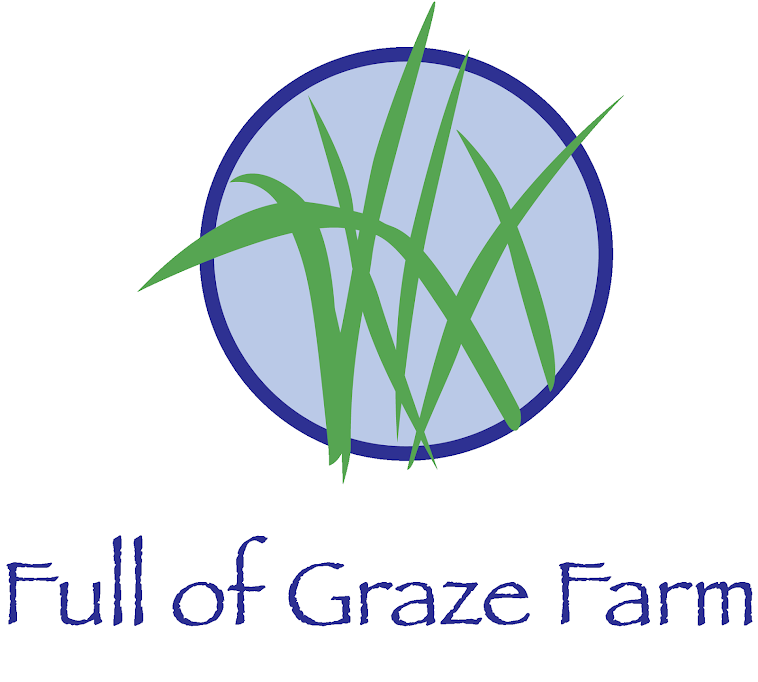1) Do not confuse true free-range eggs from pastured hens with store-bought eggs labeled "cage free" or "free range".
Nearly any egg bought in your basic grocery store, regardless of whether or not it is labeled "organic" or "cage-free" and marked up significantly in price, is produced in a large-scale, industrial way...which means it is produced in a factory/warehouse setting with inhumane, unsanitary conditions that provide little to none of the natural elements needed to produce a truly healthy, wholesome egg. True free-range, pastured hens are those that are not only given so-called "access to the outside", but those that are regularly free to roam on a pasture and greatly benefit from the sunshine, fresh air, exercise and bugs, worms, and grass they eat. And the benefits these ladies receive from God's good earth pass along into her egg and into your belly!
2) Why are free-range eggs from my local farmer more expensive than what I can buy at the grocery store?
"A dozen eggs should not cost $4!!" Simply put, it is a fact of life that you get what you pay for. Cheaply made food with less nutritional value will be cheap. Food that is carefully raised to reach optimum nutritional benefit will cost a bit more. It is difficult (if not impossible) for true free-range laying hens to be raised on a massive scale of production. Much more time, care and attention is needed to produce a dozen eggs in the natural world than is needed in the industrial model. But the taste and nutritional benefit of a true free-range egg are worth its weight in gold!
3) Okay, then, what exactly are the health benefits of a true free-range egg?
Mother Earth News conducted an egg testing project in 2007, finding that eggs produced by free-range hens compare favourably with those produced by battery cage hens. Eggs from free range hens had up to:
- 1/3 less cholesterol
- 1/4 less saturated fat
- 2/3 more vitamin A
- 2 times more omega-3 fatty acids
- 3 times more vitamin E
- 7 times more beta carotene
The study involved 14 flocks across the United States whose eggs were tested by an accredited Portland, Oregon, laboratory, and the results were similar to those obtained via a 2005 study of four flocks.
This is just a short list of health benefits and found in one study. If you need more convincing, do research on the web. Here are a few more sources to check out:
4) How can I be sure I'm getting the real deal?
Know your farmer!! Who is providing the food you eat? Knowing your food provider on a personal basis is much more reassuring than sticking your hand in a grocery store refrigerator and pulling out a carton of eggs/milk/meat from a unknown, unnamed source. Talk to the local farmer who is selling free-range eggs and inquire how they raise the hens, what food they feed them, and if you're interested, ask if you can see their farming operation up-close. Most small, family-owned farms are very happy to have visitors and pleased to show off how well they treat their animals.
5) What did you say about the environment?
Farming on a small-scale, with products distributed to local buyers is better for the environment. Period. We at Full of Graze Farm are not advocates of preserving the earth for the sake of the earth, but we are conservationists. It is our belief that it is our privilege and responsibility to be good stewards of the natural resources God has given us, to conserve and promote the health of the land for future generations of human beings and animals.
In a good farming model, a variety of animals are raised in a way that creates a symbiotic relationship between human, animals of different species, and the earth, where they all work together to reduce unnecessary waste and improve each other's living environment. Done well, small-scale farming is much more sustainable than the industrial method of producing cheap food for maximum profits. In a word from Sustainatable.org:
Environmental Benefits
Pasture-based systems can help the environment, especially through fertilizing the soil and by reducing the amount of grain produced as feed. And unlike industrial farms, which rely on large amounts of fossil fuels to truck feed and animal waste, pasture-based systems take advantage of the animal’s ability to feed itself and spread its own manure.
For a greater study into this topic, see Michael Pollan's Omnivore's Dilemma. It's one of our recommended, must-read books found on the sidebar of this blog. It's available at most libraries.
There is, I must admit, one disclaimer to this article. Once you try free-range eggs, you'll never want to go back to the store-bought, caged version!! They're just that good!
Which egg is not Free Range?


No comments:
Post a Comment